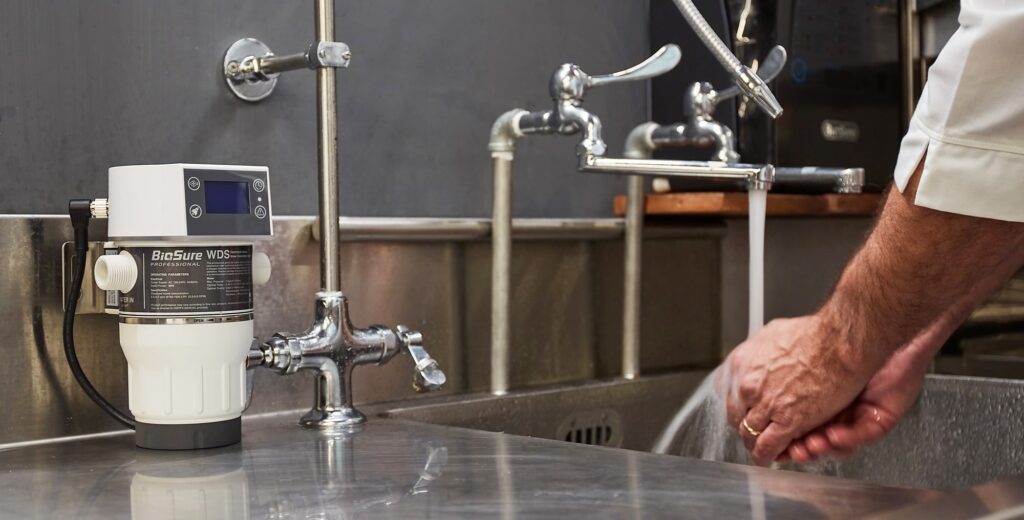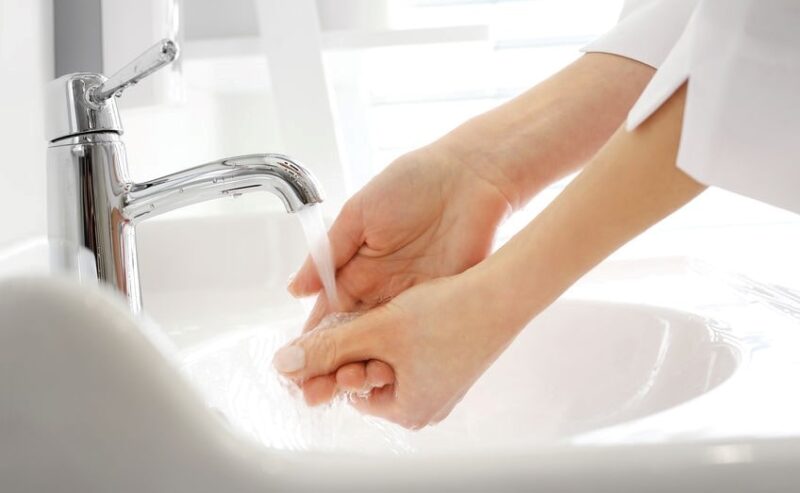Hand hygiene has never been taken so seriously by the public as it is in 2020 and 2021. Ever since COVID-19 emerged as a worldwide health emergency in February 2020, health agencies and healthcare workers have advised on how to protect ourselves from the new virus. Mask wearing, social distancing, and self-isolation are considered the most effective ways to prevent the spreading of COVID-19.
Among all of them, one suggestion stands out above all, which has been repeated on news announcements, advertisements, and authoritative interviews — washing hands with soap for at least 20 seconds. The World Health Organization (WHO) published an infographic showing the correct way to wash hands, which even advises washing for 40 to 60 seconds. It is suggested by the WHO that adopting frequent hand hygiene as part of day-to-day practice can play a critical role in fighting COVID-19, as hand washing is one of the most effective actions people can take to reduce the spread of pathogens and prevent infections including the COVID-19 virus.
Why Hand Hygiene Matters
The reason that hand hygiene has been taken so seriously is that the COVID-19 virus mainly spreads through droplet and contact transmission. Most often, this happens through aerosol transmission or by hands after touching infected people or contaminated objects or surfaces. Our hands can spread the virus to other surfaces or our mouth, nose, or eyes if we touch them. One of the cheapest, easiest, and most important ways to prevent the spread of COVID-19 is to wash our hands frequently with soap and water. Numerous studies have proven that hand washing can mechanically remove pathogens, and laboratory data demonstrate that alcohol-based hand rub effectively reduces the number of pathogens that may be present on the hands.
When You Should Wash Your Hands
Early on in the pandemic, the UK government’s scientific advice was that we should wash our hands every few hours, even when most of the populace was quarantined in their homes. Thomas Gilbert, an associate professor of chemistry and chemical biology at Northeastern University in Boston, said in an interview that’s not really necessary for those who mostly stay home.
Healthcare providers and those caring for Covid-19 patients need to wash their hands more frequently, especially if they are coming into contact with objects or surfaces the infected patient has touched or coughed on. The CDC has also listed a few key times when people should wash their hands for avoiding germs spreading including:
- Before, during, and after preparing food
- Before eating food
- Before and after caring for someone at home who is sick with vomiting or diarrhea
- Before and after treating a cut or wound
- After using the toilet
- After changing diapers or cleaning up a child who has used the toilet
- After blowing your nose, coughing, or sneezing
- After touching an animal, animal feed, or animal waste
- After handling pet food or pet treats
- After touching garbage
Since hands are a major source of germ transmission, it is vital for healthcare organizations and those linked to public health to train their staff on proper hand hygiene, including healthcare institutions, food and beverage services. According to the CDC, healthcare providers need to wash their hands as many as 100 times per twelve-hour shift, depending on the number of patients and intensity of care. The FDA also highlighted the importance of hand hygiene including washing hands for at least 20 seconds for employees in food service establishments or retail food stores during the pandemic.
Alternatives for Hand Disinfection
In addition to handwashing with soap or alcohol-based hand sanitizer, there is some exciting news on alternatives for maintaining hand hygiene. Researchers have found that ozone water or ozonated water is a great weapon to fight against COVID-19 as well. According to the CDC, ozone is a safe and effective sanitation method, protecting against even some of the most resistant microorganisms. Compared to general chlorine disinfectants, its sterilization speed is said to be 3,000 times faster, and its sterilization ability is 50 times stronger. In addition to its strong ability in disinfection, it leaves no chemical residues on hands or in the air, and it has no taste or smell after the reaction. It also causes no negative effect or irritation to our mouth, nose, or skin.

In October 2020, Scientists at Fujita Health University, Japan, found that low concentrations of ozone can kill coronavirus cells, which may provide a way for hospitals to disinfect examination rooms and waiting areas. The study used an ozone generator in a closed room with Covid-19 samples. After 10 hours of subjecting the virus specimen to low-concentration ozone, the potency of the virus dropped by more than 90 percent.
Even before the 2020 pandemic, scientists found ozonated water disinfects hands better than alcohol-based sanitizer — excellent news for surgeons who suffer from eczema caused by frequent hand washing. Hans Johan Breidablik, the lead researcher of this study, said one of the benefits of disinfecting hands with ozonated water is that it does not cause skin irritation and dryness that can be associated with 75% alcohol hand sanitizer. It also doesn’t damage latex or rubber gloves and other medical protective gear.
According to a study from the University’s Institute of Population Health, among all cases of irritant contact dermatitis, they found a quarter of them were in healthcare workers.
An unlimited source of chemical-free disinfection
with an ozone water disinfection system
Ozonated water is easy to obtain now with the availability of commercial electrolytic ozone generators. The Water Disinfection System (WDS) by BioSure Professional generates ozonated water on demand by attaching the unit to a waterline. Simply connect the unit to an existing, filtered water input and the system will turn the water into an efficient and safe sanitizer. The process and result are totally chemical-free.
Concentration matters
The WDS uses a revolutionary EOG (Electrolytic Ozone Generator) technology that replaces chemical dosing treatment for sanitation. This safe process reduces overall operating costs and is environmentally friendly. The WDS also produces an instant concentration of ozone that’s superior to ordinary ozone generators. When it comes to hand sanitizing and hand washing, it’s equally effective. Simply attach it to a waterline and ozonated water can be generated in an instant, removing one less path that COVID-19 has to spread the virus.
Healthcare workers, office workers, and homeowners can attach a WDS system to have access to ozonated water to keep viruses and infections away without chemicals or alcohol.
Conclusion
As handwashing becomes part of the post-covid new norm, healthcare professionals are preferring to sanitize their hands with ozonated water. Rather than stocking up on 75% alcohol that leaves a chemical residue, irritates the skin, leaves harsh order and taste, and is not easy to store, ozonated water has come as a new, and improved method for keeping healthcare staff and patients safer from infection. To learn more details of the Water Disinfection System by BioSure Professional, please visit here.


